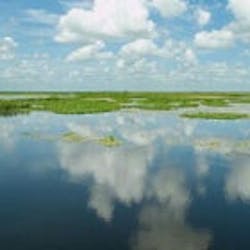Black & Veatch Leading Florida Desalination Research Project
Source Black & Veatch
Black & Veatch has announced it is leading a research project focused on the unique challenges of desalinating brackish water in Florida.
When completed, the study will provide Florida utilities and other similar areas of the world with technology and application process recommendations to utilize additional water resources in order to meet growing consumer demand. The project is sponsored by the American Water Works Association Research Foundation (AwwaRF).
“There is growing need for affordable and environmentally responsible desalination in many regions of the world” said Jennifer Warner, project manager for AwwaRF. “Florida is one such region that has access to brackish water sources, but many of these sources also contain high concentrations of natural matter, making desalination more challenging.”
The project builds upon previous desalination studies led by Black & Veatch for AwwaRF. The company has previously studied zero liquid discharge (ZLD) desalination applications for the southwestern U.S., and has evaluated optimal desalination facility design and operation for improved energy efficiency.
“Water scarcity is a growing global challenge that requires tailored solutions for the unique needs of each affected region,” said Dan McCarthy, president and CEO of Black & Veatch’s global water business. “By working with industry leaders and drawing upon our extensive expertise in both water treatment and energy generation technologies, we can ensure the people of Florida, and those in similar situations around the world, have access to a sustainable water supply.”
The study will evaluate ZLD desalination of brackish water with high concentrations of natural organic matter (NOM), a common characteristic of brackish water supplies in Florida. Brackish water has more salinity than fresh water, but not as much as seawater. Water resources with high NOM concentrations create unique challenges because the compounds adversely impact the ZLD desalination treatment processes.
“In east-central Florida alone, water demand is expected to increase 84% by 2025,” said Rick Bond, Black & Veatch water process engineer and principal investigator for the project. “Available groundwater supplies will not meet the increasing demand. Desalination, along with conservation and recycling, is a key piece of the solution, and ZLD treatment will allow for protection of surface and groundwater supplies.”
In addition to the high NOM concentration, Bond added that the humid Florida climate also precludes the use of evaporation ponds, often used for the final concentrate management step in the ZLD process. To address this issue, the research team will also explore thermal desalination and enhanced evaporation technologies. The project will provide concentrate management guidance for communities where evaporation ponds are not feasible and will develop protocols that enable utilities to evaluate ZLD processes in their own source waters.
The research team includes scientists and engineers from Black & Veatch, Texas A&M University, the University of Kansas, the University of North Carolina, the University of South Carolina and Orica Watercare, Inc. Many members of the research team also assisted with the ZLD desalination study in the southwestern U.S.
The utility partners in this effort are the Orlando Utilities Commission, Tampa Bay Water, the city of Ormond Beach, Fla., St. Johns River Water Management District, South Florida Water Management District and Southwest Florida Water Management District.
Source: Black & Veatch
